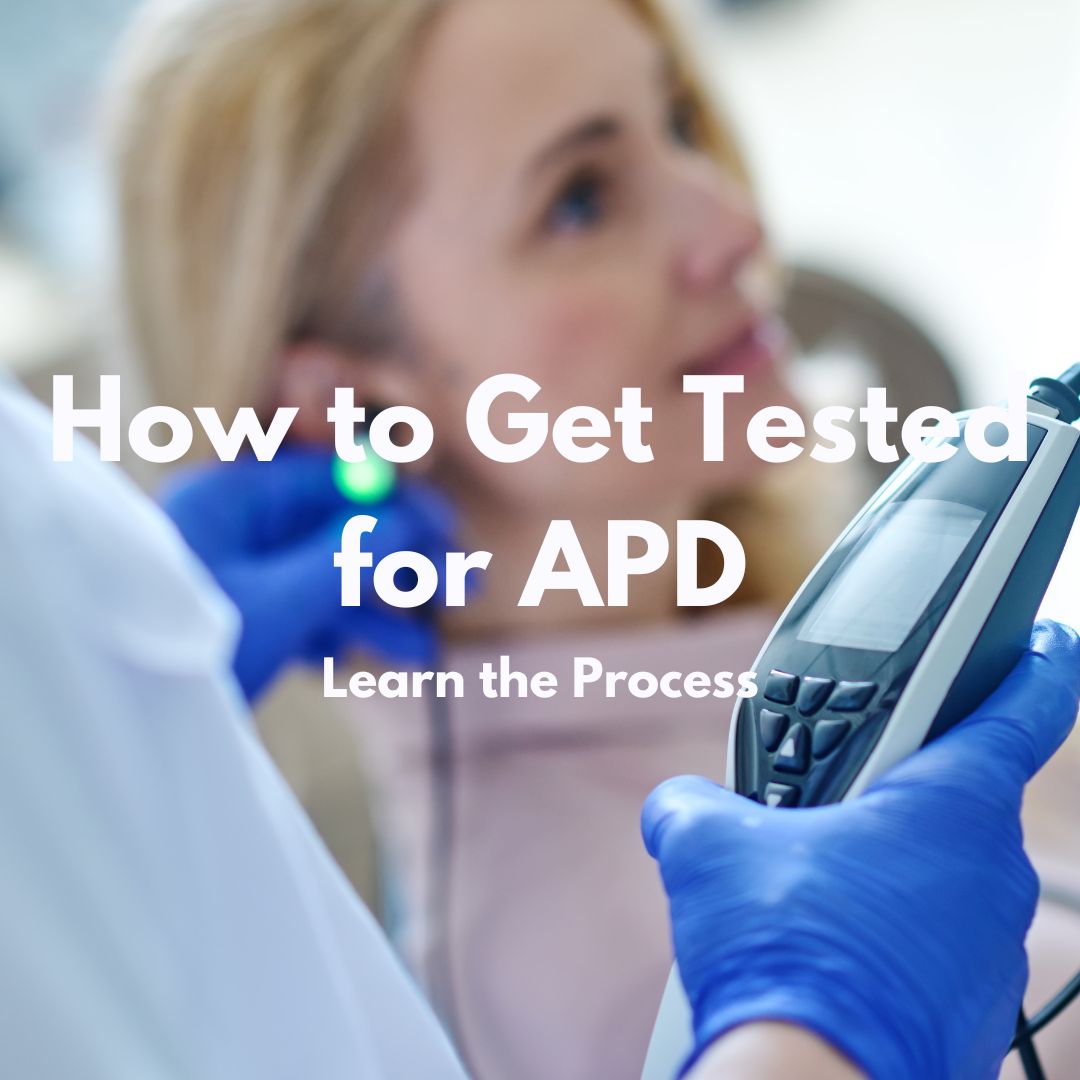Auditory Processing Disorder (APD) occurs when the brain struggles to make sense of sounds, especially speech. People with APD often have normal hearing but find it difficult to follow conversations, especially in noisy environments, or remember verbal instructions. If this sounds familiar for you or your child, getting assessed for APD could be a valuable step.
Step 1: Talk to Your GP
Begin by discussing your concerns with your general practitioner (GP). They can rule out other causes of listening difficulties, such as ear infections or attention disorders, and provide a referral to a qualified audiologist if needed.
Step 2: Get a Hearing Test
Before assessing auditory processing specifically, an audiologist will carry out a hearing test. This ensures that the ears are functioning normally. APD is only diagnosed when hearing is normal but sound processing is impaired.
Step 3: Auditory Processing Evaluation
Once hearing is cleared, a comprehensive auditory processing assessment can be done. This is typically carried out by an audiologist trained in APD evaluation. The test may include:
-
Speech-in-noise tests: Assess how well speech is understood in background noise.
-
Dichotic listening tests: Evaluate how well the brain processes different sounds delivered to each ear simultaneously.
-
Temporal processing tasks: Examine how accurately timing and rhythm in speech are perceived.
-
Auditory memory and sequencing tests: Determine how well auditory information is retained and repeated.
These tests are usually best suited to children over the age of 7 and adults.
Can You Do an APD Test Online?
In some cases, remote or online APD assessments are available through select clinics. These are typically overseen by a trained professional and may be helpful for those in rural or remote areas. Keep in mind that not all aspects of auditory processing can be reliably tested online, so it’s important to discuss this option with an audiologist to see if it’s appropriate.
Clinics Offering APD Assessments Around Australia
Here’s a list of clinics that offer in-person APD assessments—one in each state and territory:
New South Wales (NSW)
Sydney Hearing Services – Sydney
Offers APD assessments for children and adults, including speech-in-noise and dichotic listening testing.
🔗 sydneyhearing.com.au
Victoria (VIC)
Melbourne Audiology Centre – Melbourne
Provides full APD evaluations and management strategies.
🔗 melbourneaudiologycentre.com.au
Queensland (QLD)
Hear and Say – Brisbane & Regional QLD
Specialises in hearing and listening development, including auditory processing assessments for children.
🔗 hearandsay.org.au
South Australia (SA)
Adelaide Audiology Centre – Adelaide
Offers auditory processing assessments and tailored support plans.
🔗 adelaideaudiologycentre.com.au
Western Australia (WA)
Pristine Hearing – Perth
Provides Central Auditory Processing Disorder testing and treatment options.
🔗 pristinehearing.com.au
Tasmania (TAS)
Auditory Processing Services – Hobart
Specialists in APD assessment and intervention using the Buffalo Model.
🔗 auditoryps.com.au
Australian Capital Territory (ACT)
Canberra Audiology – Canberra
Conducts in-depth APD assessments with multi-appointment options.
🔗 canberraaudiology.com.au
Northern Territory (NT)
Hearing Australia – Darwin
Provides APD assessments through their Darwin centre, with options for children and adults.
🔗 hearing.com.au
Preparing for the Appointment
To get the most out of your assessment:
-
Document symptoms: Write down specific examples where listening is a challenge.
-
Collect reports: Bring school, work, or speech-language reports that reflect any listening or language concerns.
-
Check referrals: Some clinics may need a GP referral, so it’s worth confirming ahead of time.
Final Thoughts
Auditory Processing Disorder can affect everyday communication, learning, and confidence—but the good news is that it’s treatable. With a thorough evaluation and the right support, people with APD can develop effective listening strategies and improve their quality of life. Whether you're seeking help for your child or yourself, Australia has a growing network of clinics ready to assist.
Written by: CL Hub Team.

